- Home
- Philip Pullman
The Tin Princess Page 10
The Tin Princess Read online
Page 10
"If you do, ring the alarm at once, you understand?"
"The alarm, Serjeant? But--"
"It's a matter of vital importance. There may be a plot against the King."
"And the Englishman is--"
"Exactly. Keep your eyes open. Right, Corporal, you take the Ballroom. I'll go upstairs to the Gallery..."
They left. Jim swore silently. It was worse than he'd guessed; for when the blow did fall - as he was sure it would, now - they'd pin the blame on him. All the more urgent to get out... How much longer could they take, these flunkies?
Nearly half an hour, it turned out. By the time the last spoon had been set in place, the last chair set exactly parallel with the table, the last speck of dust flicked off the last glass, Jim was nearly weeping with rage and frustration.
But finally all the footmen had left the Banqueting Hall. Jim counted to one hundred to give himself a start, crawled out, and sprinted to the Serving Room. A servant with an armful of dishes watched open-mouthed as Jim swung around the corner and down the passage. He banged through the kitchen door and dashed among the squads of undercooks and scullions busy trimming joints of meat and chopping vegetables, and found himself in a flagstoned yard, where he had to pause to see where he was. Someone was shouting, and he could hear the pounding of running feet, so he ran at the far wall, took a leap up from a convenient barrel, and, scrambling over, found himself in the stable yard.
It was about time he had some luck, he thought, and there she was: a magnificent bay mare, all saddled up for the Colonel of Dragoons, who was ticking off a groom in the corner of the yard. Jim wasn't much of a hand with horses, but he knew how to tell them to go and ask them to stop, and roughly how to stay on in between, so he leapt up into the saddle, found the stirrups and grabbed the reins; and before the Colonel could draw breath, let alone his sabre, Jim was out of the stable yard and down the gravel towards the main gate.
The procession had left some time before, and the crowd following it had left the district near the Palace fairly empty; but before long Jim had to slow down, because the nearer he came to the centre, the more people were filling the streets. He changed to a trot, and then a walk, and then the crowd was so thick that it was quicker to abandon the horse altogether. He left her in the charge of a man with a vast moustache and a Hungarian waistcoat, promising to pay twenty crowns if he was still there that afternoon; and privately guessing that the man would have got fifty for her and vanished before half an hour was up. Good luck to him, Jim thought.
Then it was onwards on foot, running through the crowd, dodging around slow-moving pedestrians and swinging around corners and leaping up steps, on fire to reach the Cathedral and prevent - what? He couldn't guess, or rather he could; which made it all the more imperative to get there in time.
As the procession turned into St Stephen's Square in front of the Cathedral, Becky gasped at the sheer numbers and the great cheer that arose, but mainly at the beauty of the place on this brilliant summer morning. The fine old houses with their baroque roof-lines and their carved window-frames shone ochre and gold and cream in the clear sunlight. Figures waved from the iron balconies, and on the other side of the square, the ancient Gothic blackness of the Cathedral loomed high against the blue. Through a gap between the houses Becky could see the grey Rock of Eschtenburg across the river, without its banner, waiting.
The organ was playing as they took their seats inside. There was a fanfare of trumpets, almost loud enough to stir the folds of the flag in its bracket by the great West Door, and everyone stood as the frail old figure of the Archbishop led the King and Queen slowly up the aisle.
The King wore the uniform of Colonel-in-Chief of the Eschtenburger Guards, the smartest of all the regiments: snowy white, with a row of medals on his chest, and gold epaulettes, and a long curved sword with a scarlet tassel. Naturally, he was bareheaded, and as they went past Becky she could see that his face was drawn with anxiety.
Adelaide, beside him, was wearing a dress of rich cream silk. She had her hand on his arm, and Becky could see who was steadying whom.
The choir began to sing, and then there was a Mass, and finally, at fifteen minutes past eleven, the actual Coronation took place. It was a simple ceremony: a prayer, an oath sworn by Rudolf that he would faithfully bear the Red Eagle, and then the Archbishop anointed him with holy oil. Becky watched Rudolf and Adelaide kneeling side by side on the raised cushion, looking like little children in a play, and felt a lump in her throat that wasn't entirely patriotism.
There was another prayer, for long life and fruitfulness, and then the Archbishop turned to the pageboy who'd been standing nearby and took the Crown from the cushion he held. It was nothing much to look at: simply a hoop of black iron, set with a single huge irregular yellow topaz; but it had been forged from the very sword with which Walter von Eschten had defended the Rock and beaten Ottokar II at the Battle of Wendelstein, and the topaz was the dowry of Erszebet Csehak, the Hungarian countess who'd married Walter's son Karl. So the Crown of Razkavia was more precious than any golden bauble.
Rudolf stood to face the congregation, and the Archbishop held the crown high and placed it gently on the King's head. A sort of collective sigh went round the Cathedral, and the ancient Archbishop knelt to kiss the King's hand. Becky was sure she could hear his knees creaking.
Then Adelaide also kissed hands, and the trumpets blazed a great chord as the organ thundered below them. The Archbishop led the way down the aisle towards the West Door, where the Adlerfahne hung, and as they passed everyone gazed at them, staring openly: congregations, like cats, may look at kings.
The West Door had been opened wide. The Archbishop waited for the congregation to regroup itself around them, which meant a great deal of polite jostling. Becky caught Adelaide's eye, and the Queen seemed to see her interpreter with relief, for a quick bright smile flashed into her eyes before the impassivity descended again.
Eventually everything was ready. Below them in the Square four thousand or more - who could tell how many? - pairs of eyes looked upwards. Soldiers and policeman stood ready to clear the route towards the ancient bridge.
Then the Archbishop turned to the Adlerfahne. The flag itself was about eight feet long and six deep, made of gold-yellow silk, with the Red Eagle embroidered in scarlet and crimson. Around the edge was a fringe of golden tassels. It was fastened to a flagpole about twelve feet long, and it was very heavy; but then, it was to be carried by a king.
The Archbishop said a prayer, and sprinkled the flag with holy water; and then Rudolf took hold of the flagpole and lifted it from the bracket, and walked the three or four yards out on to the Cathedral steps.
As he appeared, a great cheer rang out. Hats were waved, the crowd swirled to make way as the soldiers and police began to organize the path for him, and the trumpeters, lined up on the steps, raised the golden instruments and sounded the Eagle Fanfare.
Adelaide joined the King, a little behind him on his left, and Becky wasn't sure she didn't hear an extra shout or cheer of greeting. For the moment, anyway, Razkavians had put all their doubts about King Rudolf aside. Aesthete, dandy, mooncalf he might have been, but he was their King, the Adlertrager, the Eagle-bearer, and they loved him for that. This was the moment when the nation remade itself: this carrying of the flag, this renewal. Becky felt her heart surge with pride, and sorrow too, for her father. He should have been here to see this. But there was joy in her too, and she knew that many and many a citizen felt as she did: their King, their flag, their freedom, their nationhood. They would have died for him.
But it was he who died for them. As he took the first step down towards the Square, a shot rang out, shockingly, horribly loud even above the cheers and the fanfare, and Rudolf stumbled. The tumult and the music stopped in a moment, faltering into a hideous silence as the great silken flag drooped and sagged down, down, downwards, as if the Eagle itself had been shot, and Becky heard the whole Square, four thousand people, hold their bre
ath as one.
The first to move was Adelaide, and her first move was towards her husband. A great red rose seemed to be blooming on the snow of his uniformed breast, and her hands went out to him, but with the last of his strength he held up the flag and whispered, "Der Adler..."
A dozen hands reached up around him, but stopped; every man, woman and child in the Square reached up involuntarily; but they held back, because the flag was firm in the hands of the Queen, Adelaide, and she was holding it.
The Archbishop was on his knees beside the dying King. Already the crowd below was surging forward and then parting, inviting her down, urging her on.
She had to struggle to get the flagpole upright, and then inelegantly rested it on her hip while she moved one hand for a more comfortable grip; and then with one passionate, devastated glance at Rudolf (which the crowd saw, and noted) began to move down the steps and into the Square.
The Count was at her side on the left, Becky at her right. Out of the corner of her eye, Becky could see Karl von Gaisberg and half a dozen other green-and-yellows shove through the crowd and stand like a guard of honour for Adelaide to walk between them. They closed ranks to keep the crowd back and give her space to move into, and she took the first steps across the cobbles towards the old houses at the corner of the Square, and the bridge beyond.
The issue was clear: if Adelaide managed to carry the Adlerfahne to the Rock, Razkavia would remain free. But assassin, or the same one still at large with another bullet; and there was the weight of the ancient flag, the sheer difficulty of managing a twelve-foot pole with forty-eight square feet of heavy multi-layered silk hanging from it - and Rudolf had been practised and drilled, and she had not; and there was the natural anguish she felt at seeing her husband shot down beside her...
The Count had drawn his revolver. Karl von Gaisberg came close to Becky and said quietly, "Where's Jim?"
"They tried to arrest him in the Palace. I don't know if he managed to get out."
He whistled softly. "Will she make it?"
"Who can tell? But she'll die trying."
"Let's hope not..."
He took his place again at the head of the phalanx, and Becky moved up beside Adelaide, who saw, and cast a proud, anguished look at her.
"Rudi?" she said, in a strained voice.
Becky could only shake her head.
"I can't do it, Becky," Adelaide muttered. "I can't..."
"Yes you can," Becky said back. "Rest if you want to. Take as long as you like. But you can, you can."
Adelaide stopped, but only to shift the weight from one side of her body to the other, propping the foot of the flagpole on her hip. A hundred anxious faces pressed close, eyes wide, mouths gaping, and then a voice cried, "Ein hoch dem Konigin!"
"Hoch! Hoch fur Adelaide!" More voices joined in, and the cheer strengthened her, for she hoisted the flag once more and they moved on.
Jim reached the Square just as the procession came out through the Cathedral door; in time to hear the fanfare, to hear the fatal shot, to see Rudolf fall. A bitter lump of pity came to his throat; Rudolf had never asked for this, he'd never sought the Crown, but he'd done his best, he'd shouldered the burden, and through Jim's mind there ran the knowledge that if the King had seen what was coming, he'd have gone ahead and done his duty all the same. Adelaide had seen something in him, poor zany, and Jim had always felt the deepest kind of admiration for the way men who weren't naturally brave could face danger without flinching.
He saw Adelaide field the flag; a professional cricketer couldn't have done it better, he thought. Then he remembered something else, and foreseeing the arguments later if things weren't done properly, he forced his way up the Cathedral steps, said a word to the Archbishop, and picked up the crown. No one had noticed it; the iron hoop had rolled off Rudolf's head and was lying in the gutter.
There was no point in trying to jostle their way over the bridge, so he tugged the Archbishop's arm and beckoned to a Captain of hussars, holding up the crown. The man's eyes narrowed, he reached for his sword - then he understood, and joined them. Together he and Jim hurried the Archbishop down the steps, around the side of the Cathedral, and down to the ferry at the water's edge.
It was a leaky old flat-bottomed barge that was hauled from one side to the other by means of a wire rope suspended over the water. Jim had watched the old ferryman a dozen times, and it looked easy, but it took all his strength, and the Captain's, and the Archbishop's prayers, and still the boat swung wildly this way and that.
Jim looked upstream, saw the commotion along the parapet of the bridge, and wondered grimly if she'd get there first after all.
"Heave!" he shouted. "Pull harder!"
Above the heads of the crowd, Becky could see the statues that lined the parapet of the bridge. Each one was covered in a heavy crop of small boys waving their caps and cheering. Like the Square, the road across the bridge was cobbled, and she tensely watched Adelaide's delicate satin shoes feeling for balance.
Step by slow step they moved on, up the crown of the bridge to the very centre, and so thick was the crowd - standing, clinging together, even along the stone coping of the balustrade - that Becky feared that if one missed his footing, he'd take another dozen down into the water with him. Adelaide was crying silently. Her teeth were clenched, her face was white, her arms were trembling.
"We're over halfway there," Becky said. "Just keep going!"
"It's all bloody uphill now, innit?" Adelaide muttered back through the tears, but she didn't stop.
At the other end of the Bridge the road passed under a great Gothic archway and gatehouse, every window of which was thronged. The road narrowed, and it was getting harder to force a way through the crowd. Karl shouted, "Make way! Make way for the Queen to get through! Make way there!"
The Count had replaced his revolver, and was watching her intently from only a foot or so away, tensed to hold her if she faltered. His fierce old face was full of anxiety and pride.
As they reached the gatehouse under which they had to pass, Adelaide was shaking so much that Becky thought for a moment that she'd drop the flag; and What then? What then? pounded through her head. But Adelaide didn't drop it; she paused again to rest it on her hip, and looked up at the Count before leaning momentarily on the support of his arm; and then she moved on again, under the gatehouse, and the crowd on the left parted, shoving and pushing and clambering on to every window-ledge, every minute projection, and opening the way to the flight of steps that led up to the summit of the Rock.
"Pull, Captain, pull!"
How did the old ferryman do it? Jim had marvelled before at the way some doddering old clot who could hardly spoon gruel into his face would dig a trench or cut down a tree in a quarter the time it would take a hearty youth with bulging muscles; and here was the proof of it again. He and the Captain were sweating and trembling, and the barge was yawing wildly, and they still hadn't reached the shore.
"Ja - hau ruck! Hau ruck!"
Damn it, Jim thought, what was he doing this for? Well, it wasn't only for Adelaide. It was for Rudolf too, and the Count; and for Becky; and for Karl von Gaisberg; and for the whole of this rickety little country, with its pride and its history and its honour. He felt as Razkavian as the good Captain just then, so he swung into the heaving with a will, and before long they were out of the main current and making easier progress towards the wooden jetty on the far bank.
And then they were clambering ashore.
"Where now? The funicular?" said the Captain.
"It's the only way. Come on!"
They hustled the man of God up the lane around the base of the Rock towards the little station, where they banged on the door of the station-master's cottage until someone heard and came running.
"No - forbidden - the funicular is not functioning -"
But then he saw the Archbishop, who held up the crown, and, gaping, took it all in. At once he began to throw levers and uncock taps, for the funicular was weig
ht-driven. A tank of water at the top (fed by the very spring which had kept Walter von Eschten and his knights alive centuries before, and which was now playing a second part in the history of Razkavia) filled a tank in the empty carriage at the top, which, being heavier than the one below, duly trundled down, pulling the lower one up. It was neat, simple and silent, but achingly slow; so while the Archbishop sat in the carriage and waited, the Captain and Jim set off to run up the rough slope beside the track.
Adelaide looked up at the path, closed her eyes, and bit her lip before looking again at the ground to be sure of her footing. The path was narrow - no more than two people could walk abreast - with a railing on the left and stone-walled houses, which after a short distance gave way to the naked rock itself, on the right. From every window faces looked down as first Karl and two other students stepped upwards, then Adelaide and the Count. Becky was nearly blocked, but Adelaide called desperately, "Becky! Stay with me!" and she twisted and heaved her way through to step behind her.
"I'm here," she said. "I'm with you."
More students fell in behind, and the crowd surged up ahead, stumbling, clambering, making room. Adelaide's feet in their soft shoes (torn now, ragged and dusty, never intended for this) fumbled uncertainly as they lifted her from step to step.
A low, constant moan was coming from her throat. Her teeth were gritted, Becky could see, as she looked back, and her eyes were drenched in tears. Adelaide halted, and Becky couldn't see what she wanted, and then the Count said hoarsely, "Her dress - she'll trip - and stood aside for Becky to dart up beside her and lift the heavy embroidered silk up a little so her feet could find the next step without stumbling.
She could feel Adelaide's whole body shaking, and let the Queen lean on her for a few seconds; and then heard the whisper, "Get out the way - I'm going on -" and stood back to let her take a few steps more.
Onward and upward, a step at a time, and ever and ever more slowly; and the crowd below; and those waiting at the summit, as well as all the people perched on ledges or clinging to the bushes that grew from the side of the Rock, were silent now. The cheers had died; all those close to her could see the strain in her chalk-white face, and share the anguish as she bit so hard into her lip that she was drawing blood.

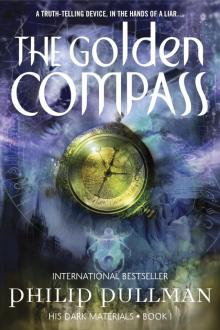 The Golden Compass
The Golden Compass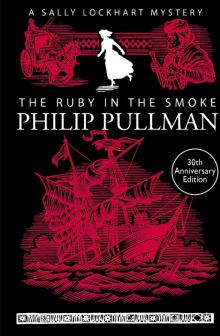 The Ruby in the Smoke
The Ruby in the Smoke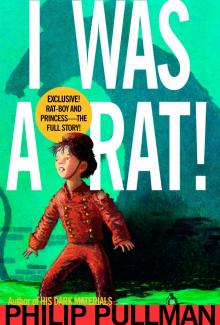 I Was a Rat!
I Was a Rat!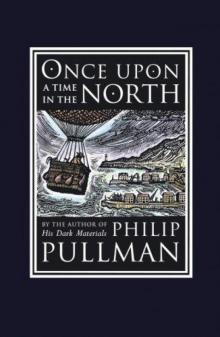 Once Upon a Time in the North
Once Upon a Time in the North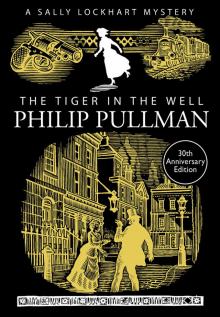 The Tiger in the Well
The Tiger in the Well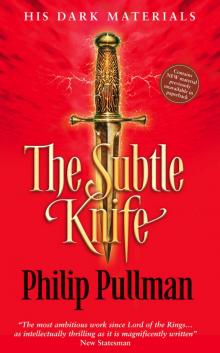 The Subtle Knife
The Subtle Knife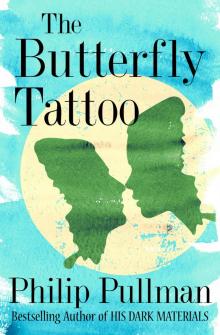 The Butterfly Tattoo
The Butterfly Tattoo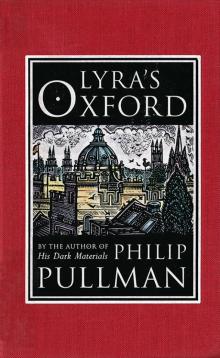 Lyra's Oxford
Lyra's Oxford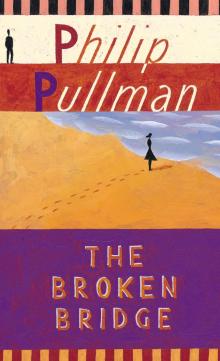 The Broken Bridge
The Broken Bridge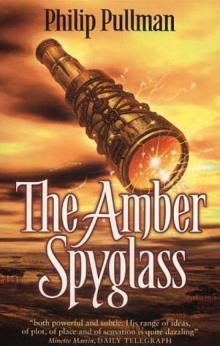 The Amber Spyglass
The Amber Spyglass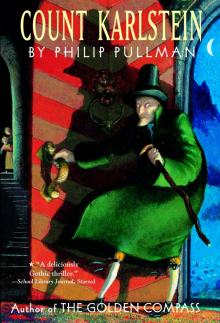 Count Karlstein
Count Karlstein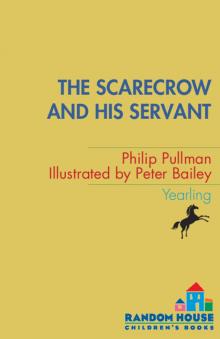 The Scarecrow and His Servant
The Scarecrow and His Servant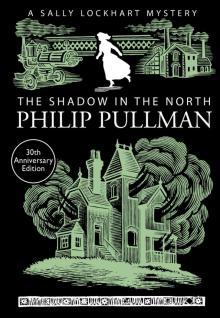 The Shadow in the North
The Shadow in the North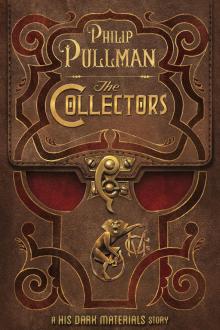 The Collectors
The Collectors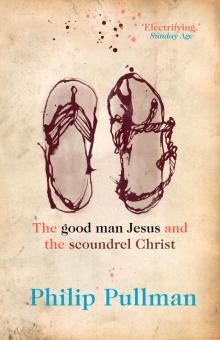 The Good Man Jesus and the Scoundrel Christ
The Good Man Jesus and the Scoundrel Christ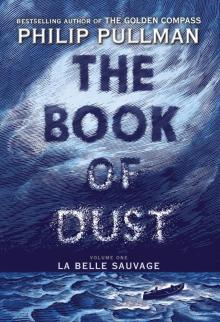 La Belle Sauvage
La Belle Sauvage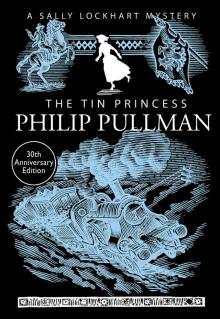 The Tin Princess
The Tin Princess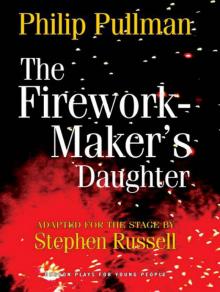 The Firework-Maker's Daughter
The Firework-Maker's Daughter The Book of Dust: The Secret Commonwealth (Book of Dust, Volume 2)
The Book of Dust: The Secret Commonwealth (Book of Dust, Volume 2) Serpentine
Serpentine Daemon Voices
Daemon Voices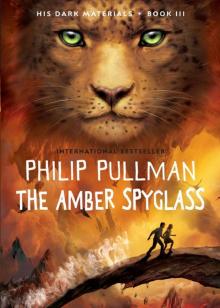 The Amber Spyglass: His Dark Materials
The Amber Spyglass: His Dark Materials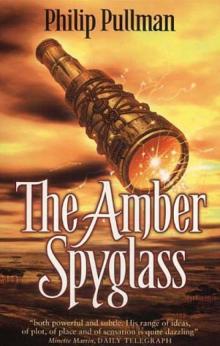 The Amber Spyglass hdm-3
The Amber Spyglass hdm-3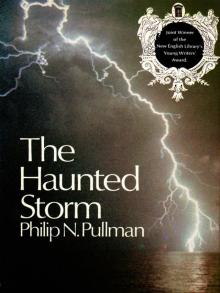 The Haunted Storm
The Haunted Storm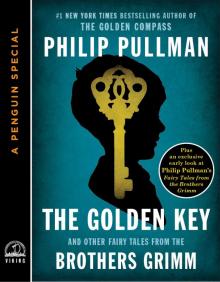 The Golden Key
The Golden Key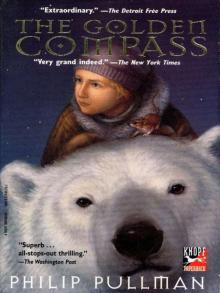 His Dark Materials 01 - The Golden Compass
His Dark Materials 01 - The Golden Compass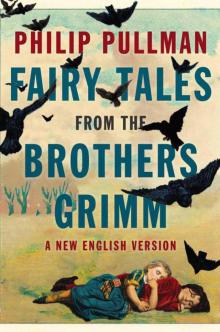 Fairy Tales from the Brothers Grimm: A New English Version
Fairy Tales from the Brothers Grimm: A New English Version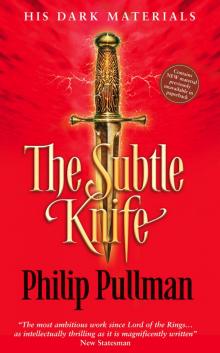 His Dark Materials 02 - The Subtle Knife
His Dark Materials 02 - The Subtle Knife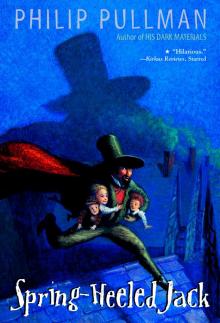 Spring-Heeled Jack
Spring-Heeled Jack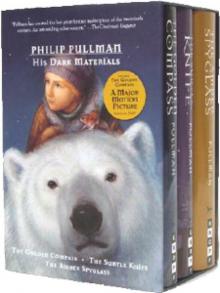 The Golden Compass hdm-1
The Golden Compass hdm-1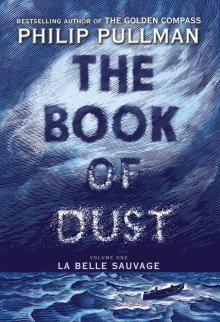 The Book of Dust, Volume 1
The Book of Dust, Volume 1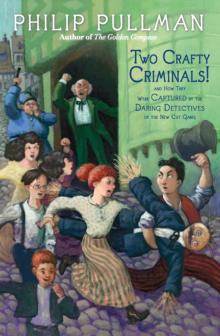 Two Crafty Criminals!
Two Crafty Criminals!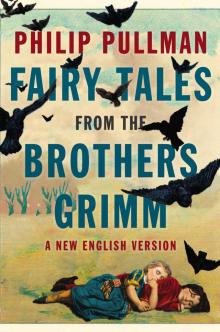 Fairy Tales from the Brothers Grimm
Fairy Tales from the Brothers Grimm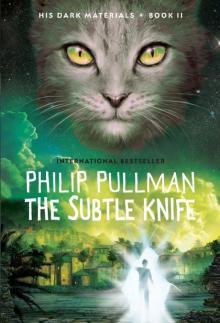 The Subtle Knife: His Dark Materials
The Subtle Knife: His Dark Materials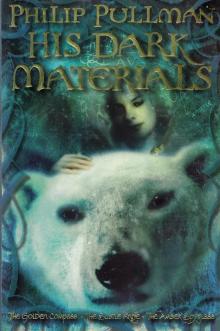 His Dark Materials Omnibus
His Dark Materials Omnibus The Golden Compass: His Dark Materials
The Golden Compass: His Dark Materials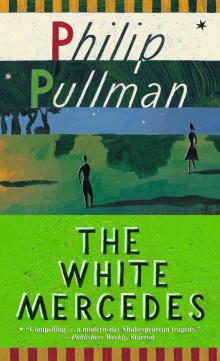 The White Mercedes
The White Mercedes